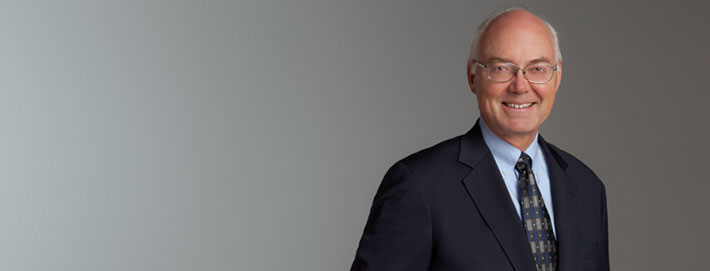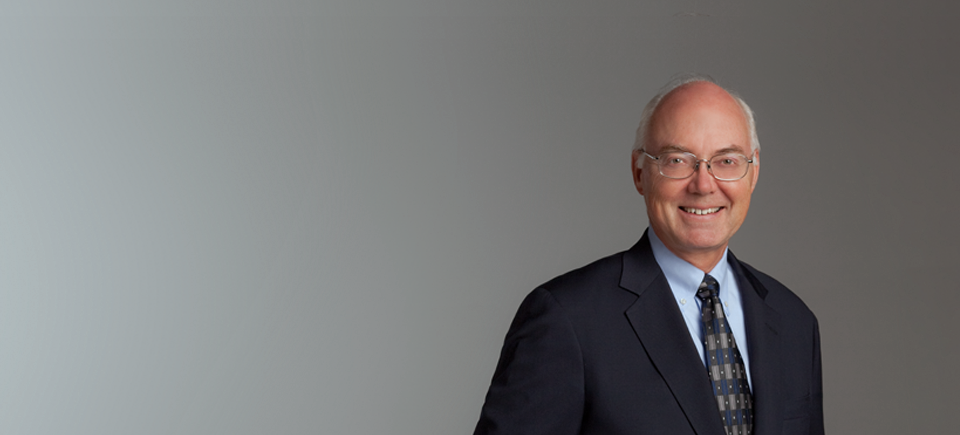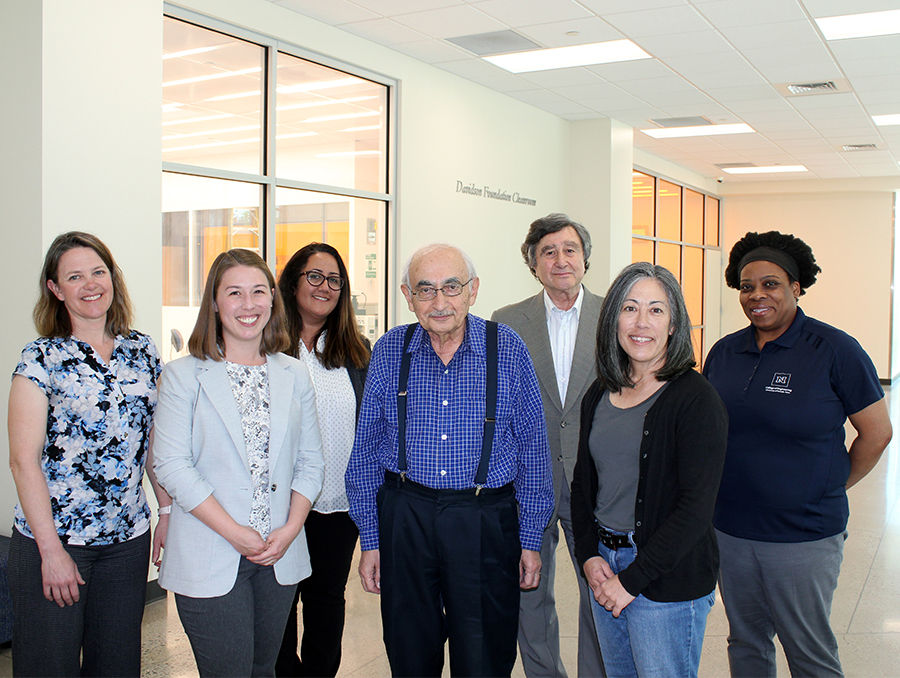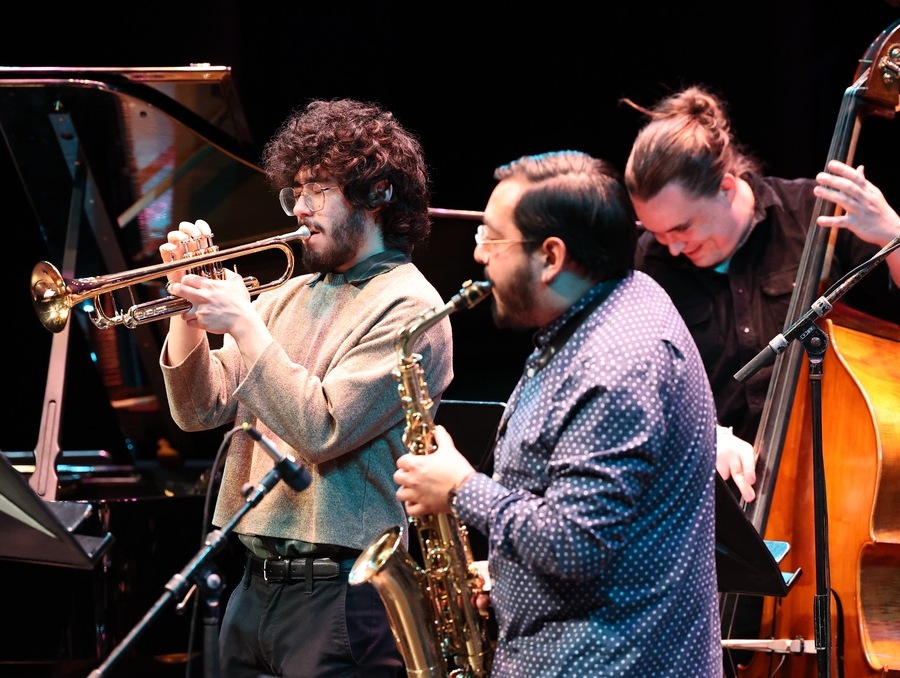
Event Details
- What: Inauguration ceremony for the University of Nevada, Reno's 16th president, Dr. Marc Johnson
- When: Friday, Sept. 28, 10 a.m.
- Where: University Quadrangle
University of Nevada, Reno President Marc Johnson, even during the busiest of times on campus, maintains a pace that is noticeably above the norm.
Even for a man who loves to walk, and who spends time on weekends on some of the area's more challenging hiking trails with his wife, Karen Penner-Johnson, Johnson's long strides seem quicker and more purposeful than most.
In between a multitude of meetings, participation in community and campus events, and even a ceremony that featured the campus' newest addition - a young cherry blossom tree symbolizing friendship given to the campus by the Japanese Consul General from the Bay Area - Johnson recently took a few moments to take stock of where the campus was, where he was on a personal and professional level, and where his words might land on Friday, Sept. 28, when he will be inaugurated on the University Quadrangle as the 138-year-old institution's 16th president.
"I'll probably be proud and happy," Johnson smiled when asked what emotions he will be feeling on Sept. 28. "I'm proud of where we are as a university, and I'm proud of the work all of our people have done."
As Johnson has been mapping the University's course for the future - a future he believes is quite bright - the 64-year-old has also found himself going back in time, recalling time spent growing up on his parent's farm in Kansas, as well a period when he was a young professor, traveling to some of the world's undeveloped countries.
He had to chuckle when asked if he learned his strong work ethic from his parents, Mary Elizabeth Johnson, 88, and the late Leo Johnson. The Johnson family farm was just south of Wichita, Kansas, and the family grew, purchased and sold produce at its own country store.
The days, Johnson said, were long, and the responsibilities many.
"My mother and father definitely taught me hard work and responsibility," Johnson said, with a gentle laugh. "They gave me plenty of opportunities for hard work and responsibility, and I didn't mind it at all.
"It was assumed I would work, and I did."
When asked if he ever thought he would one day become a university president, Johnson shook his head.
"No, I didn't think I would be a university president," he said, again drawing on his professional expectations as a young professor. "I thought I'd be doing economic development work overseas."
Both of Johnson's graduate degrees fall under the category of international development. He figured his professional career would unfold in understanding the world's food distribution systems.
"I didn't go into agriculture because I grew up on a farm," he said. "I went into agriculture because most of the lesser developed countries in the world are largely agricultural economies, and that was why I was hoping to study it. Agriculture, as I quickly found out, was the foundation of economic development for many of these poor countries.
"Agricultural economics (which Johnson eventually taught, and developed a productive research agenda around) is applied in that it can be used to solve problems in agriculturally oriented economies."
But as Johnson learned, in trips to countries as disparate as Pakistan and Colombia, Nicaragua and Botswana, Sri Lanka and Russia, it was more than the application of agricultural economics that could provide the answer for developing nations.
Johnson came away from his travels knowing that a key component - or a key component that was lacking - in a country's prospect for success was something much more fundamental: Education.
Recent events in the world, such as the turmoil in the Middle East that has come from the hopeful events of last year's "Arab Spring," have further reinforced education's central value, not only for developing nations, but for countries such as the United States as well, Johnson said.
"You can't put a price tag on the type of critical thinking and discernment skills that we provide," Johnson said. "The people we produce - our graduates - have a great ability, thanks to their experience at our University, to apply knowledge, to seek answers, and to apply ethical judgment. Diversity of experience and diversity of ideas are two of the great things a university experience can provide an individual."
He said his past travels have taught him an important lesson.
"When you see the political systems and economic resources of some countries, you realize very quickly how much education can contribute to the general improvement of a country, and of a society," he said. "It not only enhances an economic system, it enhances how people view one other. Education, really, is an enhancement of society as a whole. It's an enhancement of personal dignity."
Johnson said he will have plenty of material to choose from during inaugural address. Just in the past few days, the University has again reached record levels in enrollment, freshman National Merit Scholars on campus, and, as well, for the third year in a row, has again been ranked as a Tier 1 institution by U.S. News & World Report.
When U.S. Secretary of Education Arne Duncan held a town hall meeting on college affordability and the Latino community on campus last week, Johnson - who was there to introduce the youthful, Harvard-educated secretary to a crowd of hundreds of high school students, teachers and University faculty, staff and students - reported that diversity on campus continues to improve.
Johnson's remarked on Sept. 12 that, "we are an access school," with the record University enrollment figure of 18,227 students including 29 percent of students who were from "diverse ethnic backgrounds."
"We have a beautiful campus, beautiful in terms of how it looks physically, and beautiful in terms of the character of the people we have who teach here, who do research here, who work here, who study here," he said. "We have a long history. People truly care about our University. It's what makes this a special place."
Johnson said with so many good things happening on campus, one of his challenges will be to keep his words brief, his message tight and focused.
Tight and focused, however, shouldn't be too great of a stretch for Johnson.
After all, that sounds much like a typical Marc Johnson day, where one of the constants is the constancy of motion and movement ... of constantly working, at all times, on moving the University of Nevada, Reno forward.












